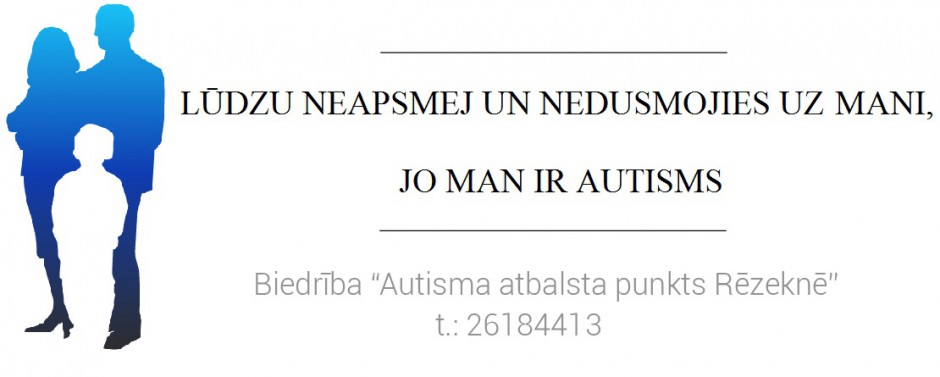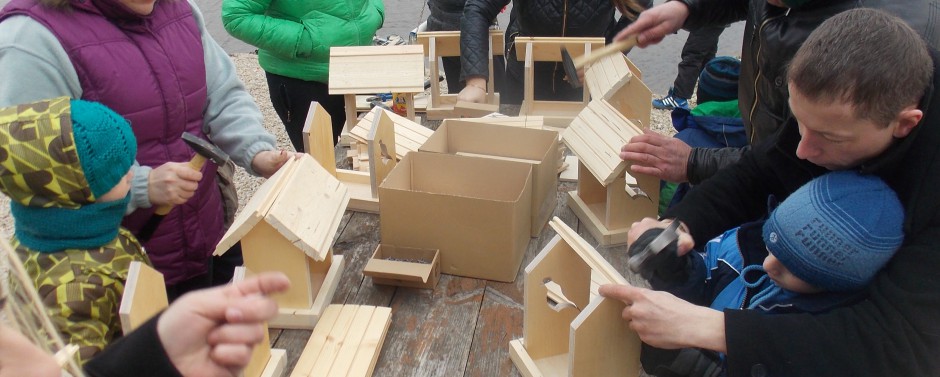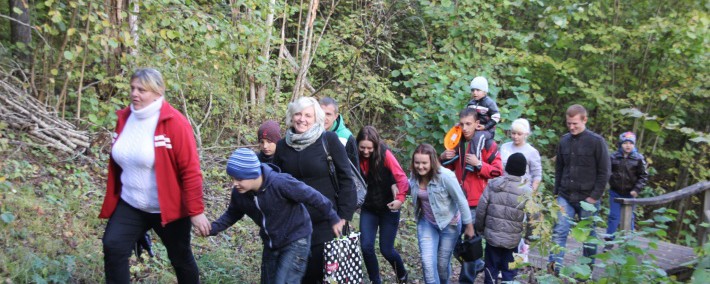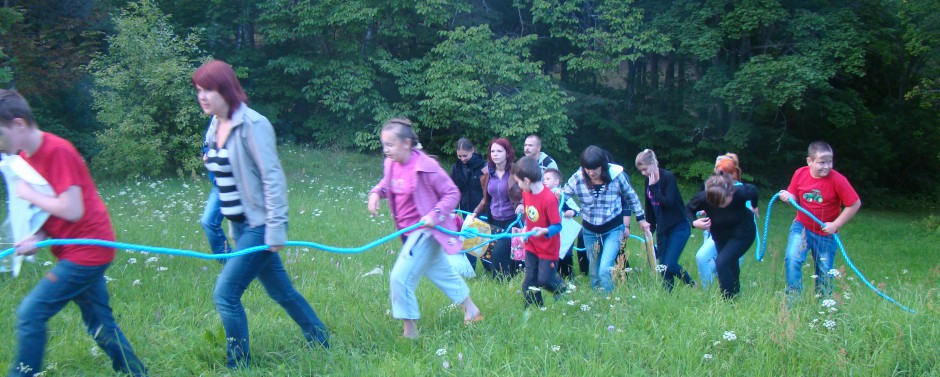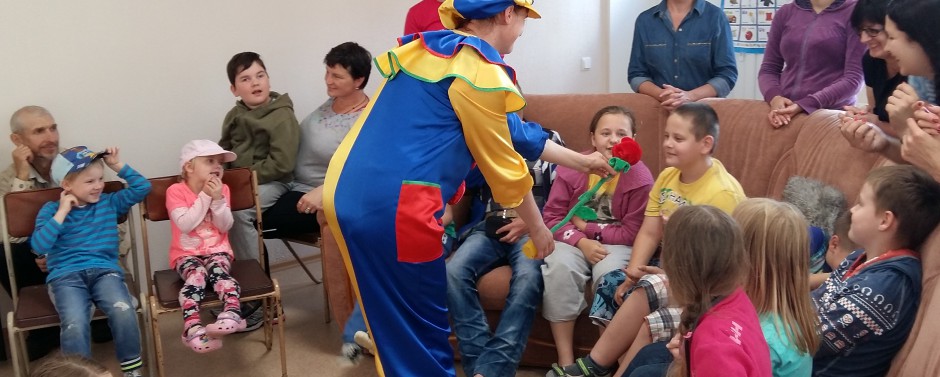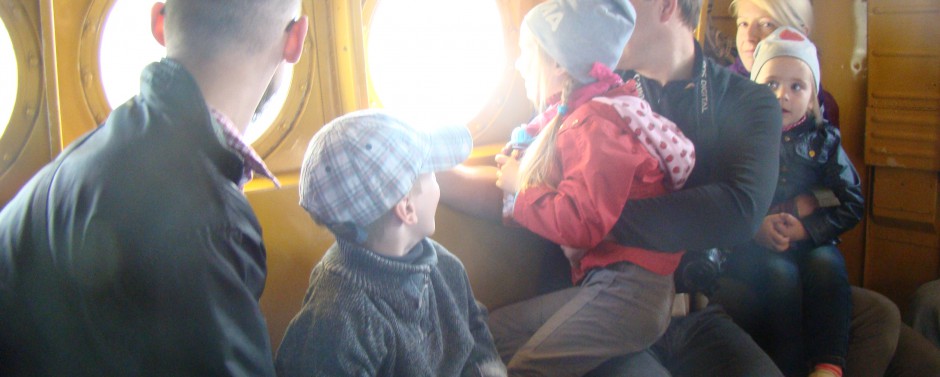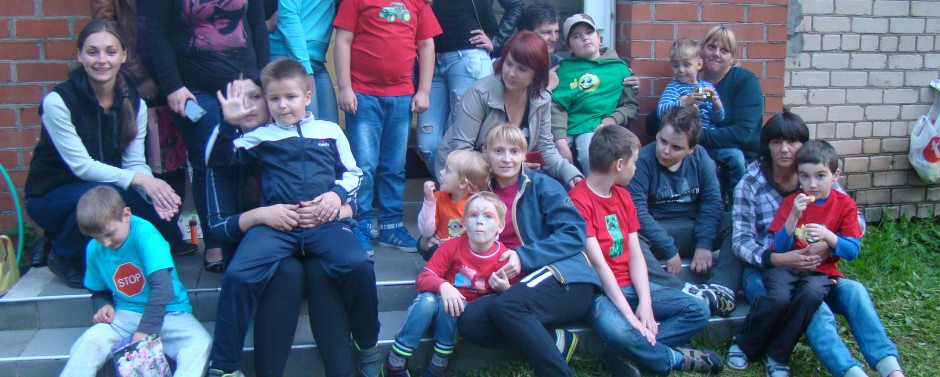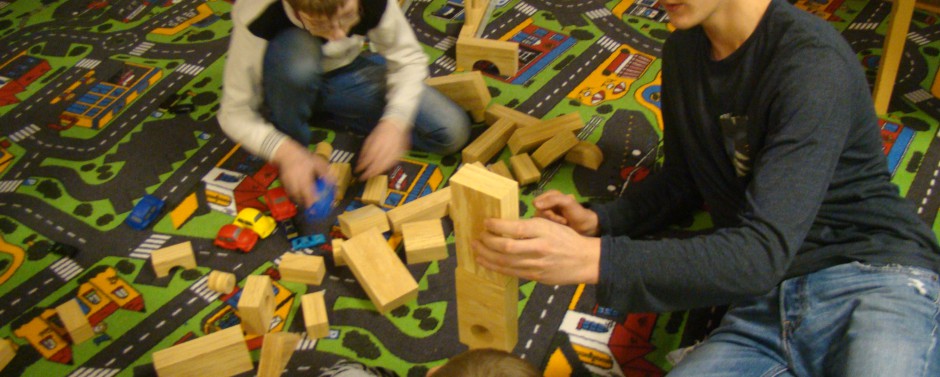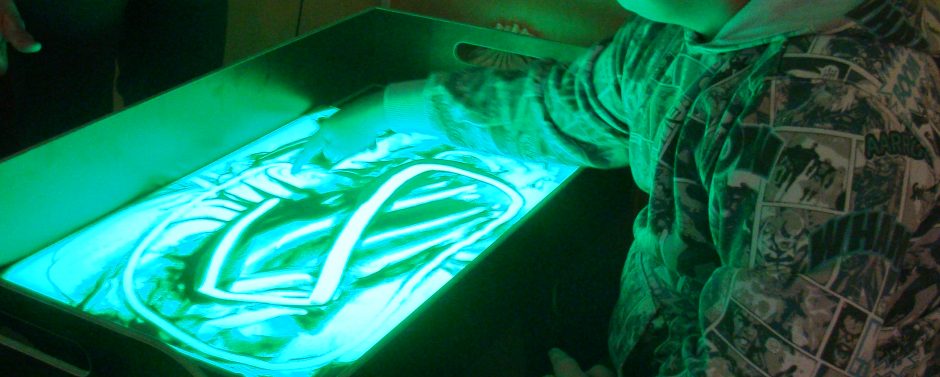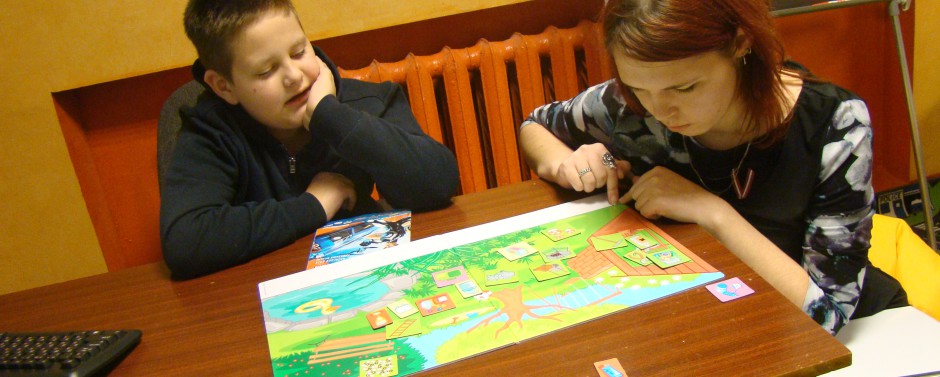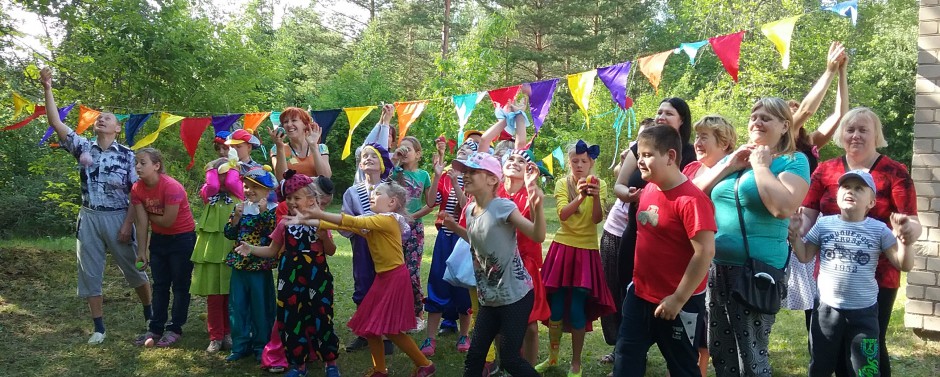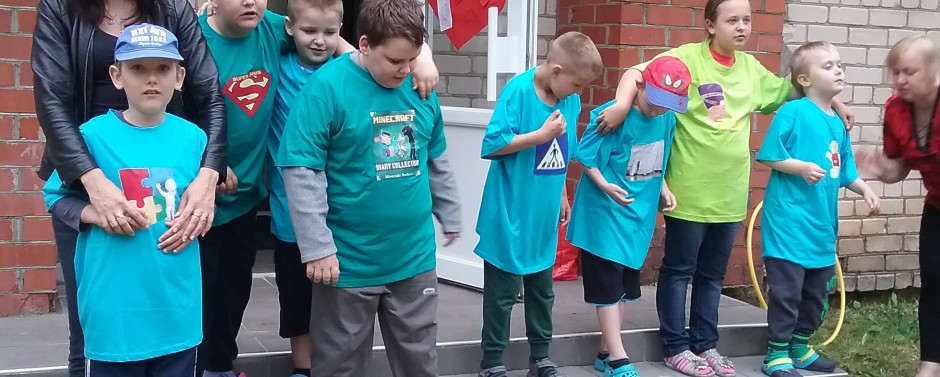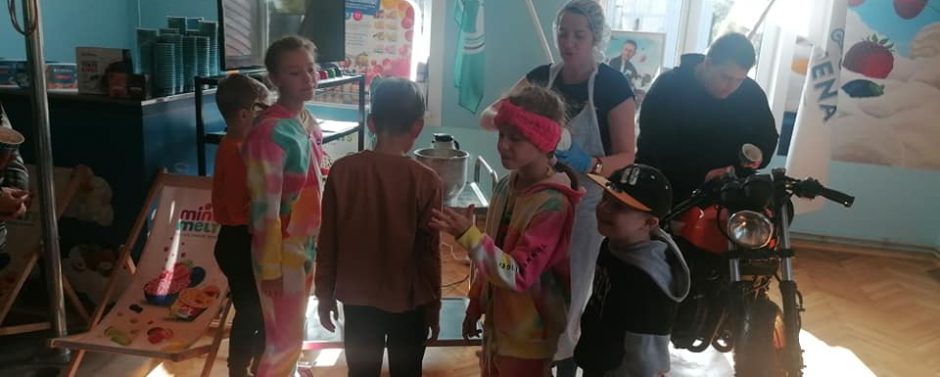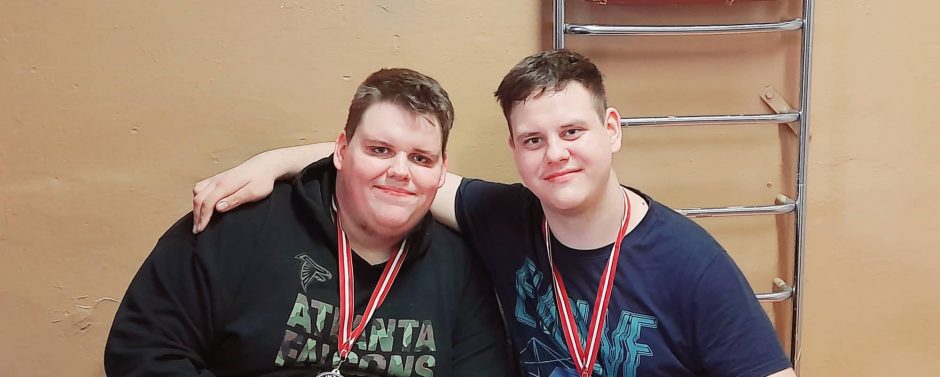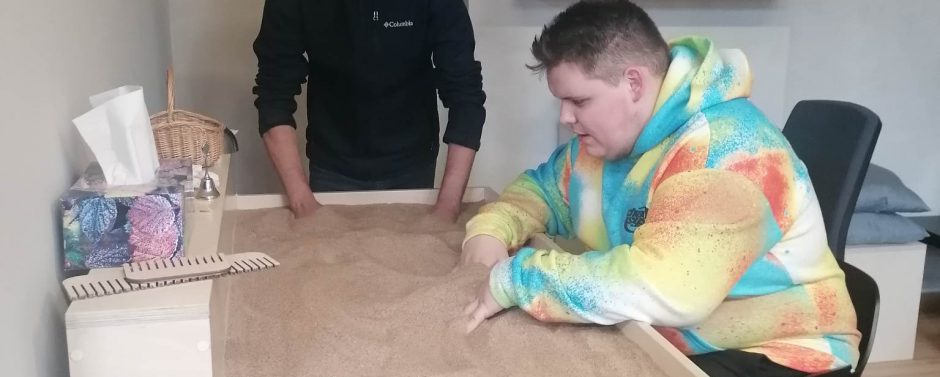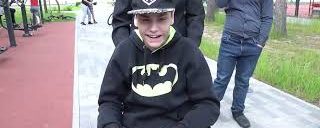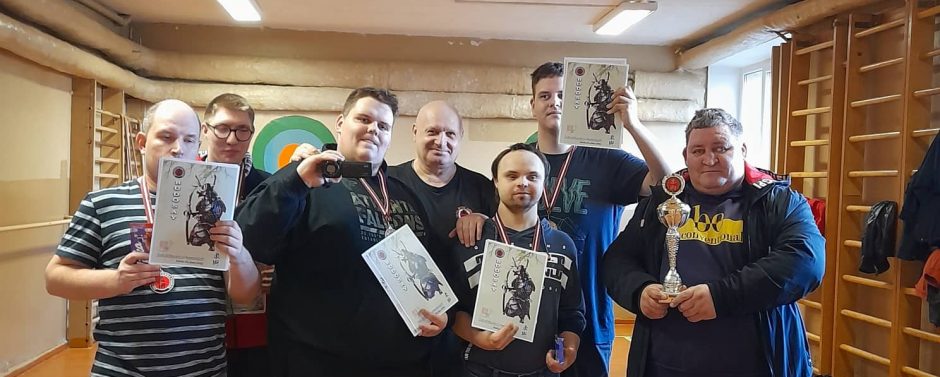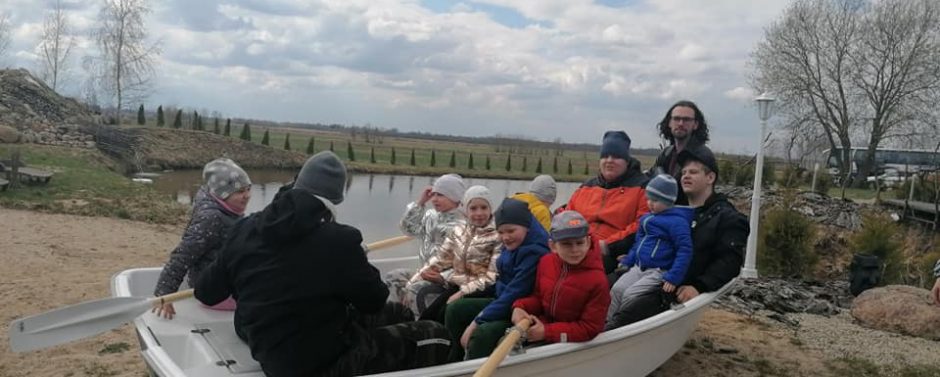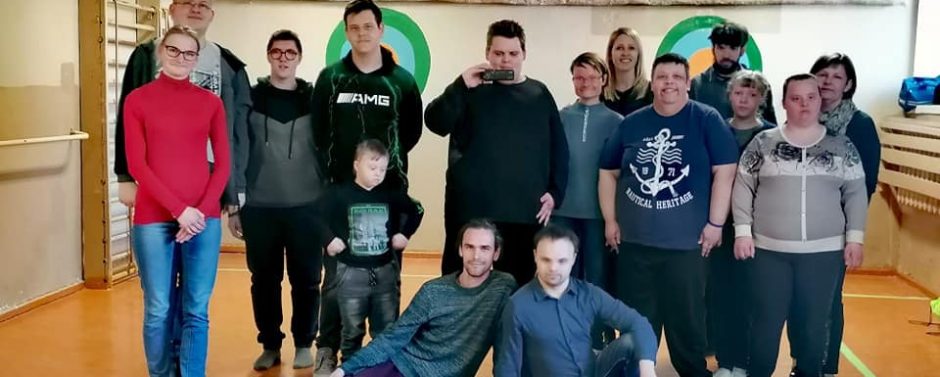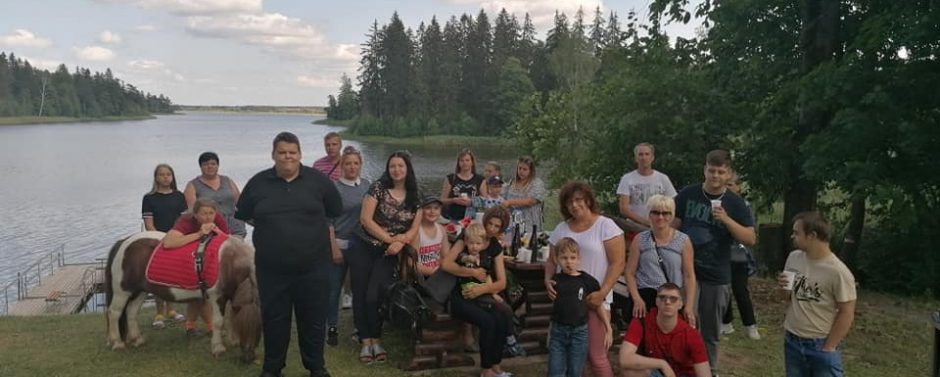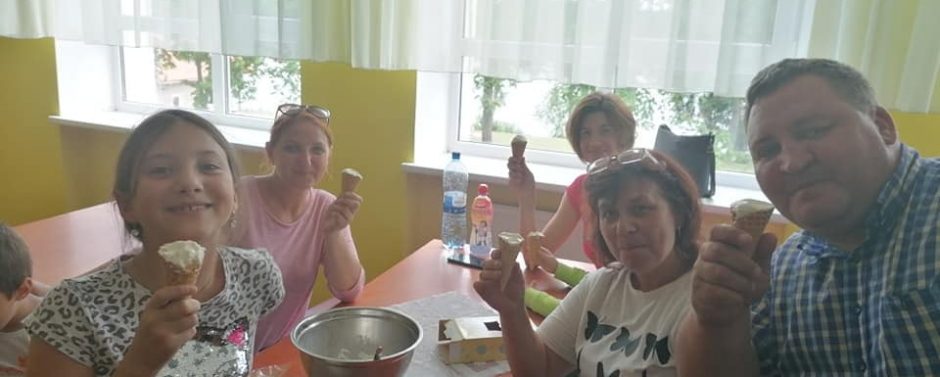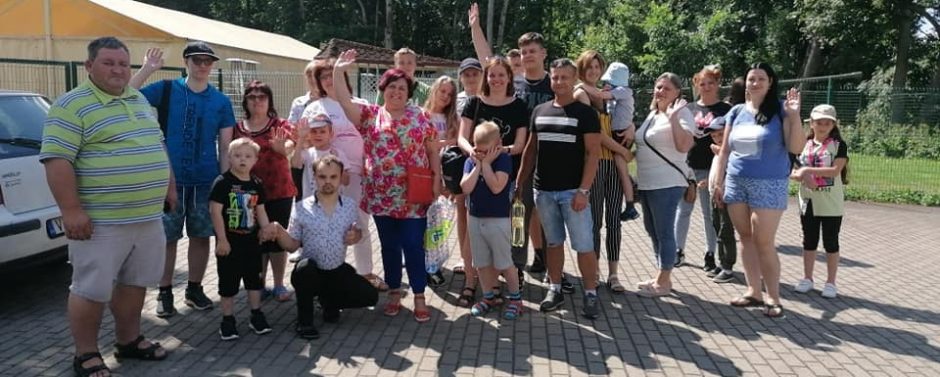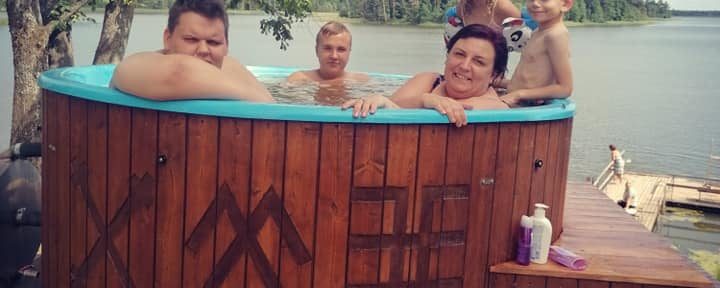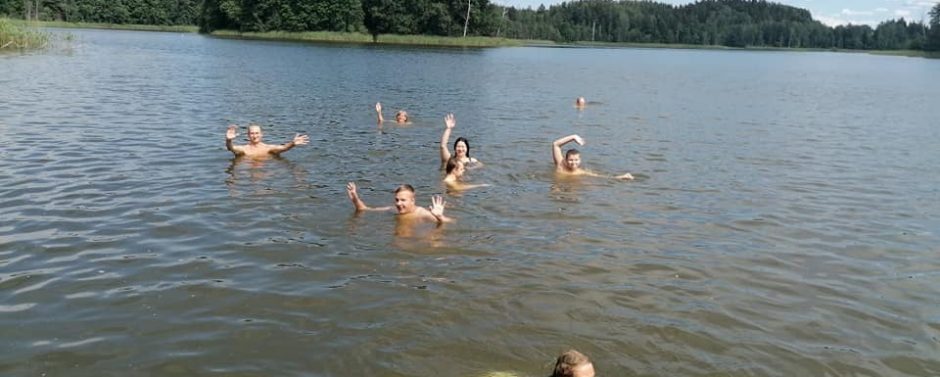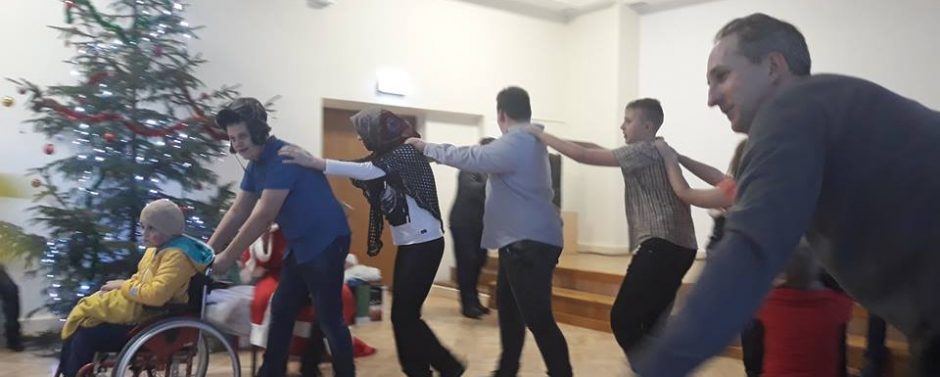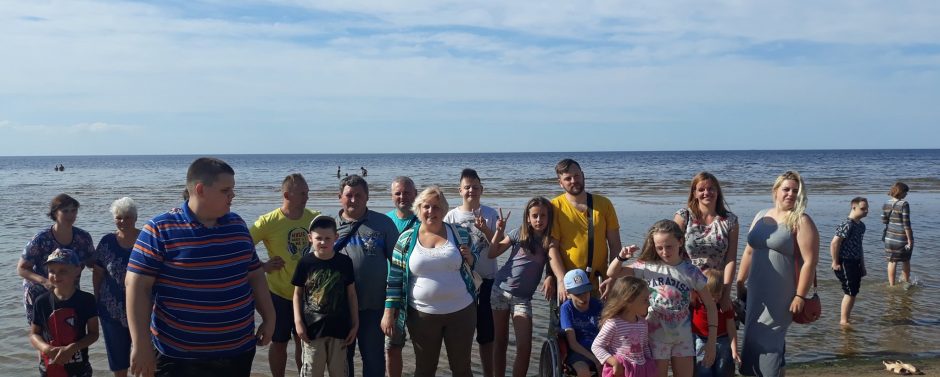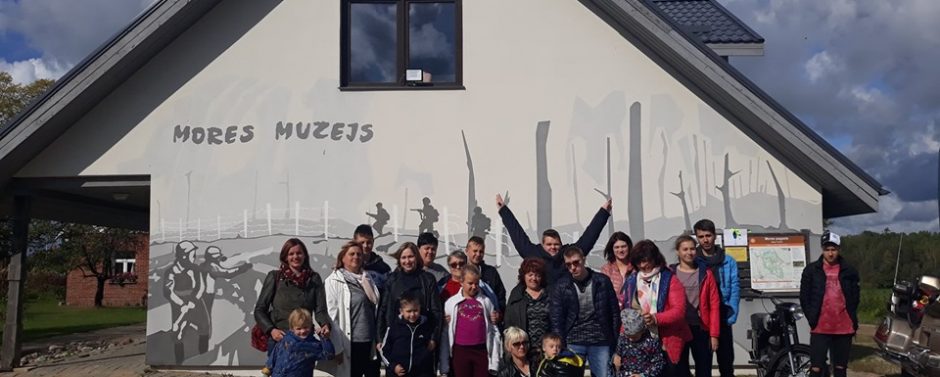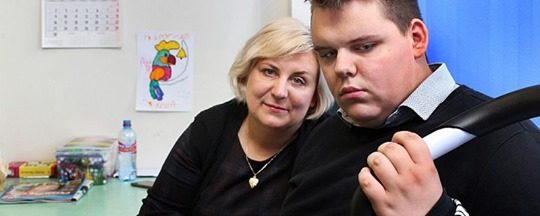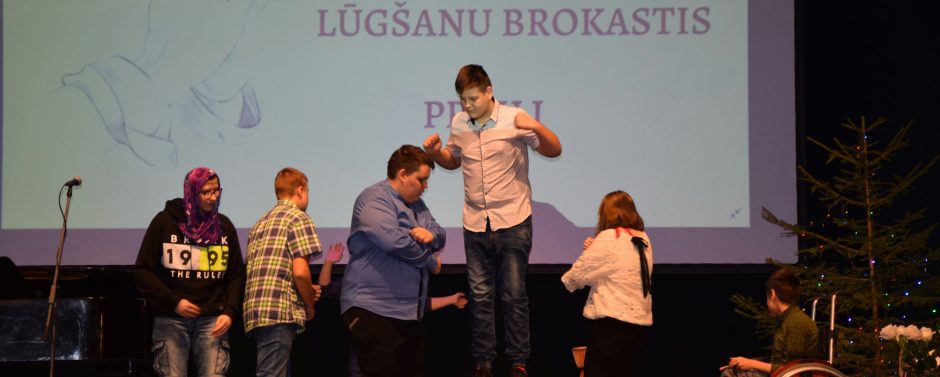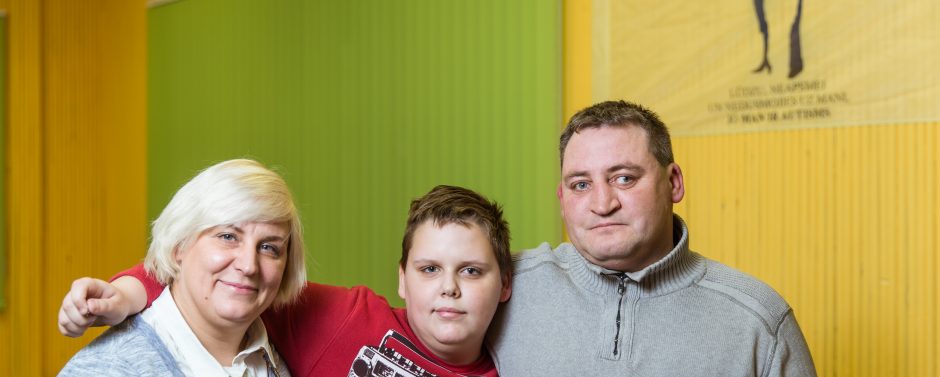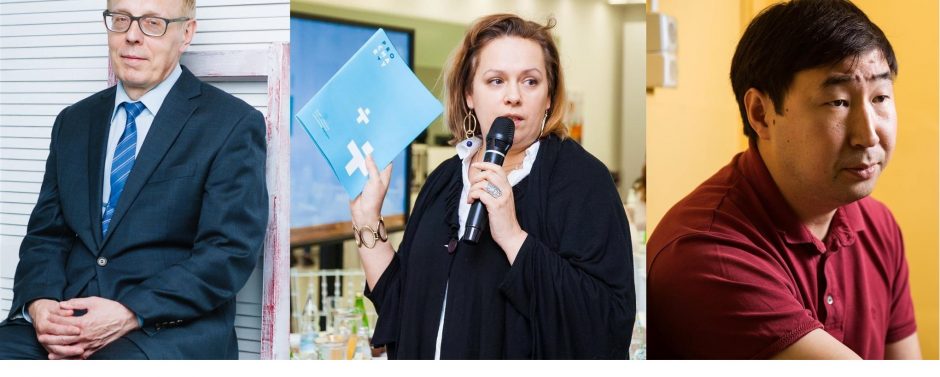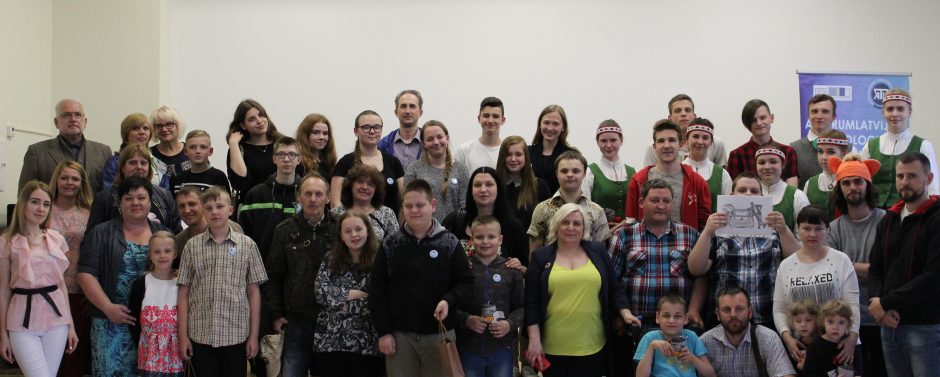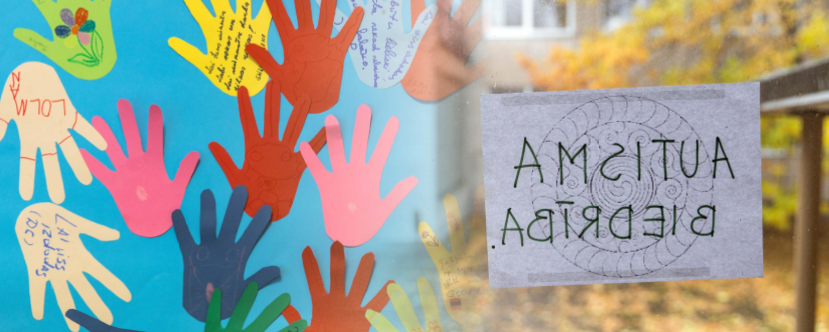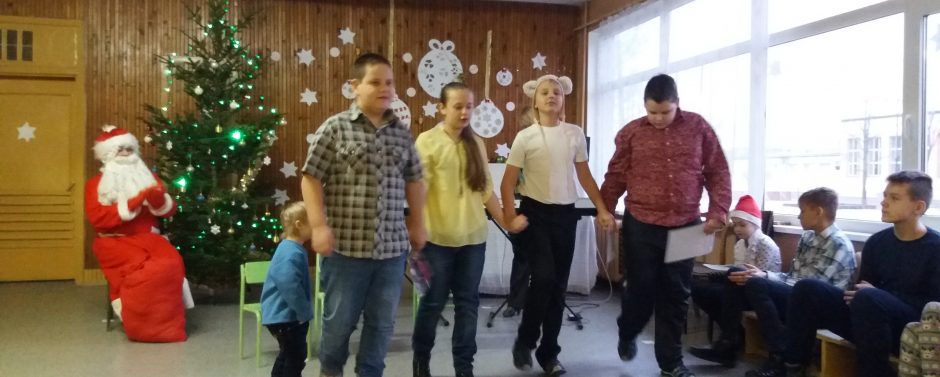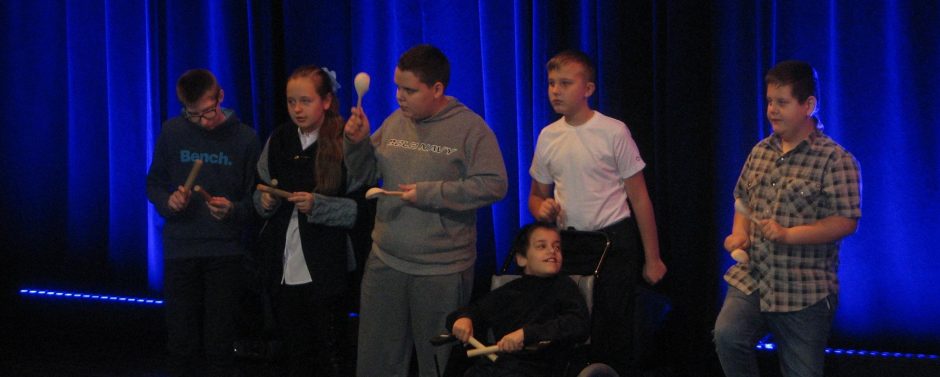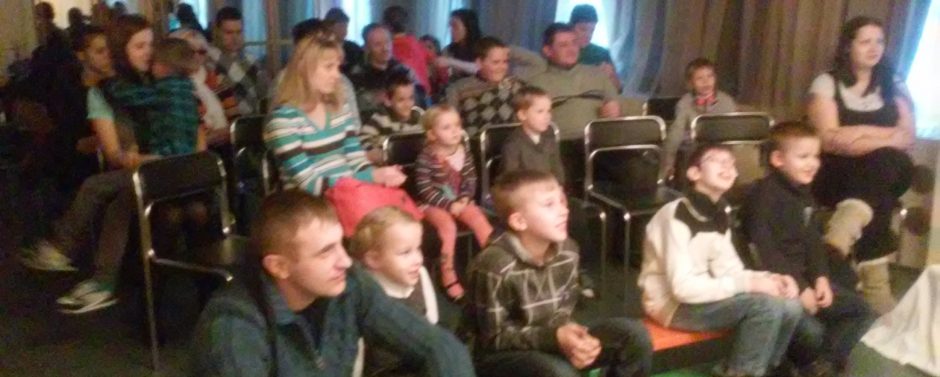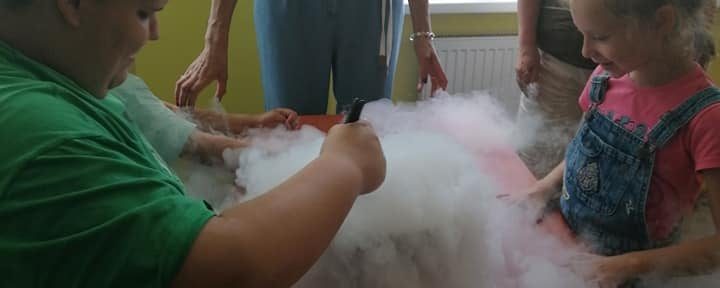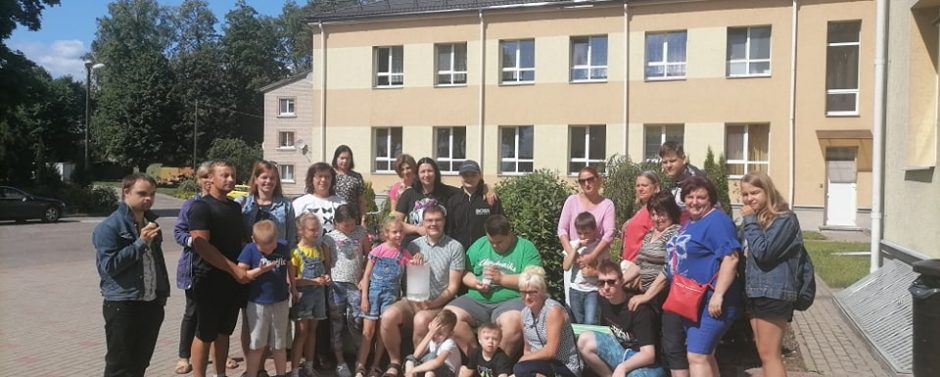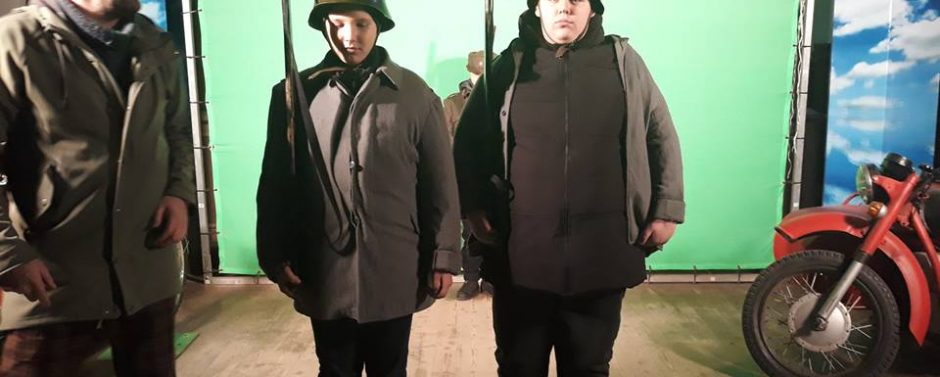The rain People
Once again it is time to return to a very painful issue – disorder in the medical system of Latvia; everybody is ready to discuss it since everybody has got experience – positive or negative. This article looks at the problems of parents whose child has a diagnosis – autism. In 2012, the association “Autism Support Centre in Rēzekne” is founded. Its aim is to protect interests and rights of the persons with autism spectrum disorders. This time, we offer conversation with the founders of the association – Sandra and Edgars.
At the age of three, this diagnosis was established to their son. Although Sandra has studied pedagogy, there was no information about autism and how to help her child. Since diagnosis is established, she with her husband is struggling for health of their child and opportunities to ensure the necessary care; in this respect, state practically does not provide help – rehabilitation and education system is unarranged. After establishment of diagnosis, physicians provide small insight into autism and parents with their child are sent home. Of course, rehabilitation is available but only at hospital “Gaiļezers”, but patients have to wait in a long queue and rehabilitation is performed only once a year for two weeks what is not enough. Ordinary physician practice is to examine a child, prescribe medicine and observe how body will react to them. “I with my husband are categorically against such approach and we are of the opinion that many children with autism features may be adapted to normal life, therefore, it must be worked with them.”
Major difficulties
Sandra tells: “Autism is not a disease, its different vision of the world which does not correspond to conventional worldview. In the society, the following opinion is often prevailing: I do not comprehend and despise the things I do not know.” There is a lack of measures in order to inform the society about various disabilities, including autism; these people have difficulties to go on the street, behave adequately and comply with the norms adopted in the society, communicate with people in a conventional way. “Imagine if you would not have an ability in acceptable and understandable way to say what you think, what you want to tell, what you worry about, what hurts; autists are trying to learn it all their life.”
In Latvia, system, which helps to integrate such children in the society, exists only formally. Parents are compelled to visit various experts for help which, as a result, is not provided; moreover, state allowances are too small. Special children do not have discounts in the sphere of medicine, they cannot visit physicians without waiting in a queue; the same refers to shops and other public places.
Education opportunities
In Latvia, appropriate education programme for the children with autism is not elaborated. Various special programmes are offered for the children with learning and behavioural disorders, as well as different mental retardation problems. Mainly, the children are educated together despite the fact that their development levels are different. Thus, it is very difficult to find a school for an autist where real teaching could be performed not only childcare.
Kindergarten refused to enrol Sandra’s and Edgars’s boy up to 5 years of age, parents achieved their goal only after lasting paperwork. Kindergarten’s excuse – a child does not know how to behave and does not fit in common environment. Sandra says: “Excuse me, I know that my child does not have this and that, but that’s why I am taking him there in order he would have an opportunity to learn. Certainly, I want my child to grow strong and healthy, but instead of help I am receiving criticism. Of course, each parent will object against any special child, however, greater understanding is wanted.”
The most difficult stage for parents started with the school-time. In the first year, mother was visiting school together with son. After that, exploring situation about the opportunities to ensure the necessary training for a child, parents concluded that the only opportunity is home-teaching. They agreed with school upon individual classes with specific educators, the remaining education is up to parents.
Since October 2015, special training room is available for the children of the association where ergotherapist, speech therapist, audio speech therapist and special education teacher work with the children individually. In collaboration with music school “Yamaha”, classes of music therapy are offered for the children. Thanks to the support of manager of Rēzekne Sport Administration, the children of the association can visit swimming-pool once a week for free. Both parents say that, initially, people were sceptical: why do you do this, etc. However, now it can be seen – demand for the classes is high, they are regularly visited by 24 children, but 38 children have visited at least one class conducted by professionals; and people continue calling, they want to apply for the classes. “Currently, existing premises are too small for us, and we do not have enough financial means in order to be able to ensure the classes for all interested persons.”
The association “Autism Support Centre in Rēzekne” has concluded collaboration agreement with medical centre “PrognozMed” in Russia on an opportunity to participate in treatment and rehabilitation course at the clinic. Parents of the children do not have enough money in order to go to Russia, therefore, we are collecting donations for the support of these families. We thank to all contributors! In April, Kristiāns and Katrīna with their mothers went to St. Petersburg. Four more children need financial support for qualified treatment and rehabilitation course at the clinic where highly qualified experts are working and the newest technologies and methods are used. Information about autism support centre: http://www.autismsrezekne.lv/en/; http://www.draugiem.lv/aapr/
Asperger’s syndrome also belongs to autism spectrum disorders; it is called as high functioning autism. Parents whose child has such diagnosis were ready to provide comments. Parents have understood that their child is different already in early childhood, starting with kindergarten where a child preferred to be alone all day long not showing a wish to communicate neither with the children nor with an educator. Such children are often rejected (in this case – even physical abuse may occur); in their comprehension, principles of proper behaviour, which are acquired by the other children already at an early age, do not exist; they have their own vision of the world. “Currently, we have a great educator, she knows that she must speak with a boy looking into his eyes and, sometimes, holding his hand in order a child would feel supported. At present, we are going well at school since an educator is strict and that is what a child exactly needs – if freedom is given to a boy, he starts to live according his own rules.” A child with this syndrome has difficulties to adapt among peers since their interests differ radically.
Mother tells: “The children of his age are interested in toy cars and guns, but we, since the age of three, are reading encyclopaedias; also at present, we have to read at least some chapters of a book in the evenings before going to sleep.” Parents have to take into consideration a fact that, on the one hand, a child is talented, but, on the other hand – not able to be on a street independently: “I am afraid to let him out alone in stairway since he is not able to distinguish between danger and daily situations.”
Autism means difficulties of interaction and communication, however, not lack of communication and, by no means, passivity. The other way round – hyperactivity is characteristic of majority of the children with autism syndrome. Autism may become apparent as disorders of social interaction, disorders of language and communication, repeated and restricted behaviour.
Psychologist of Education Support Centre of Rēzekne County Natālija Melne encourages all parents to be especially attentive in order to notice disorders in a child’s behaviour and development sooner since practice shows that timely assistance by psychologists and other experts provides an opportunity to modulate a child’s communication and learning abilities. It is difficult for parents to accept that a child does not show emotional attraction, does not react to mother’s caress, does not smile, does not tend towards familiarity, does not speak a lot, does not maintain an eye contact, has difficulties to adapt to the changes, does not feel danger, does not communicate with the others and plays with toys in unusual manner. It frightens parents, but I can assert – these children, as well as the other children really need parental love, patience and understanding, but a child is not able to say that. Rehabilitation has bigger effect if there is the work with a child every day; it is great work, but, as a result, a child is able to adapt in the society at maximal level. In Latvia, such children and their parents do not have enough resources – experts, rehabilitation and qualified physicians. However, some autists may have very high IQ score.
By the way, autism syndrome is diagnosed also to many famous people – Bill Gates, Charles Dickens, etc. These persons are the best proof that it is possible to achieve all goals with persistent work.
Laura STEPIŅA






